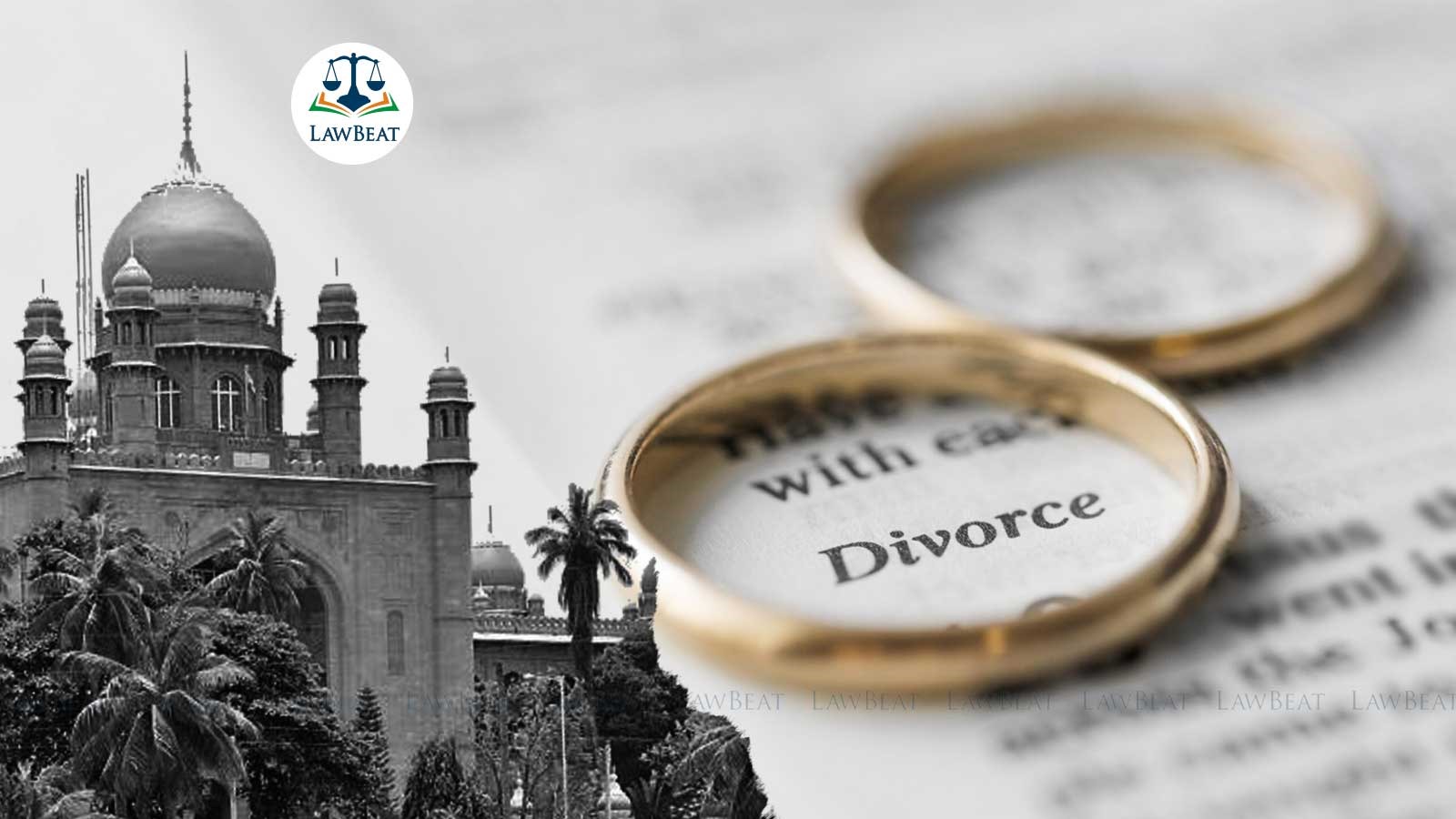Telangana HC Allows Mutual Divorce, Bypassing One Year Mandatory Waiting Period

The court noted, “The dissolution of their marital bond is beyond dispute, marked by an irreparable breakdown with no conceivable chance for reconciliation”
In a rare and noteworthy verdict, the Telangana High Court recently allowed a couple to file for divorce by mutual consent under Section 13-B of the Hindu Marriage Act, despite the mandatory one-year waiting period stipulated in Section 14(1) of the Act.
Justice P. Sam Koshy, presiding over the case, held that the said condition is not directory but mandatory while considering the couple's plea for an expedited divorce due to compelling circumstances.
The case was filed by a couple, married in June 2023, which faced significant challenges in their brief union of two months, including health issues and impotency. Despite efforts to reconcile, both parties were determined to end their marriage, leading them to file a petition for divorce by mutual consent under Section 13-B of the Hindu Marriage Act.
Seeking to bypass the mandatory one-year waiting period mandated by Section 14(1) of the Act, the couple filed an application to waive this requirement. However, their plea was rejected by the family court in December 2023, prompting them to seek recourse in the High Court through a civil revision plea.
The petitioners contended that the family court had erred in dismissing their application and failed to grasp the severity of the hardship they were facing. They emphasised the personal health issues and impotency that contributed to the breakdown of their marriage, asserting that these factors warranted special consideration.
Furthermore, they argued that they had already endured ten months of the waiting period, with only two months remaining. Given the exceptional circumstances they were facing, they sought a waiver of the remaining waiting period to expedite the divorce process.
The wife, aged 40 years, presented a compelling argument before the High Court, underscoring the urgent need to remarry due to concerns about potential health risks associated with pregnancy at her age. She emphasised the heightened risks of miscarriage and delivery complications, expressing her eagerness to avoid these challenges by remarrying as soon as possible to mitigate the above stated risks.
The court after meticulous consideration of the arguments put forth by both parties, noted the unanimous agreement of the couple regarding their decision to seek divorce and the absence of any prospects for reconciliation.
The court noted, “The dissolution of their marital bond is beyond dispute, marked by an irreparable breakdown with no conceivable chance for reconciliation.”
The court underscored the gravity of the situation by highlighting the specific health complications faced by the petitioners. Coupled with the urgent desire expressed by the wife to remarry, and considering her age. The court stated, “These elements of hardship are not merely ordinary discomforts of life, but situations of extraordinary burden that will gravely affect the petitioners and their future life,” recognising the exceptional hardship endured by the couple.
As the court recognised the necessity to exercise its discretion, it acknowledged the substantial evidence of exceptional hardship before it. Guided by the provisions of Section 14 of the Hindu Marriage Act, the court understood its authority to waive the mandatory waiting period of one year in cases of such exceptional hardship, a circumstance indisputably present in this case.
Cause Title: Dandamudi Phani Krishna v Boyapati Lakshmi Aparna [CRP No.517 of 2024]
